
If you want to be healthy, fresh and unprocessed food is the way to go, right? So, fresh should always be the best choice when it comes to fruit. But then what about the frozen stuff. Is frozen fruit good for you?
Most alternative “fruity snacks” have their own issues, like how dried fruit is sugar dense and canned fruit could be impacted by chemicals in the can or soaked in corn syrup. Such problems suggest that frozen fruit might not be healthy either.
Frozen fruit also never thaws correctly. It’s always mushy because of how freezing affects the cell walls. Such patterns suggest that the health benefits might be decreased too.
Let’s think critically, though, is frozen fruit good for you? Could it still have some benefits? After all, it does last longer than fresh fruit, making it much more convenient. We also know that frozen vegetables can be helpful, so why not fruit too?
Is Frozen Fruit Good For You?
- Benefits Of Frozen Fruit
- Are There Any Downsides?
- Which Fruits Freeze Well?
- How To Prepare And Use Frozen Fruit Effectively
- Final Thoughts
Benefits Of Frozen Fruit

The Convenience
Frozen fruit and vegetables are easy. They’re normally ready to use straight from the bag, with no washing or prep work required.
They also last a long time, often six months or even more, with little change in quality. This is exceptional, as fresh fruit loses its quality fast. Some delicate fruits, like berries, only have a few days where they’re at their best.
Trying to buy and use fresh fruit while it is still at its best can get frustrating fast. It’s too easy to miss your window or find that you need more fruit than you have.
Then there’s the seasonality. Many types of fresh fruit only grow during particular seasons. You might be able to find imported or hot house versions during off seasons, but these tend to be expensive and often aren’t as good.
Frozen fruit gets around this problem, as you can find it at any time of the year. It’s a fantastic way to still have delicious berries even in the middle of winter.
Provides Nutrients And Antioxidants
Fruit is sometimes overlooked because of the sugar content. Yet, it’s a critical part of your diet, providing plenty of important vitamins and minerals, along with antioxidants and other plant-based compounds.
The antioxidants are particularly important. These help to prevent oxidative damage from free radicals. The effect can help to protect your body and decrease the risk of some diseases.
Research confirms that frozen fruits and veggies do retain their antioxidants. In fact, frozen fruits and veggies can be even more antioxidant rich than produce that’s been sitting in the fridge for a few days.
Can Be As Healthy As Fresh Fruit

Frozen fruit seems like it should be inferior to fresh. Yet, it often isn’t.
This is partly because frozen fruit is harvested as soon as it is ripe and is then immediately snap frozen. The freezing process halts any deterioration, keeping fruit fresh and nutritious.
In contrast, the fresh fruit you buy in the local store often isn’t that fresh. It has frequently been transported from another part of the country and has changed hands multiple times before it reaches you.
Sometimes the fruit is even harvested before it’s ripe and is ripened artificially. That approach might make it less nutritious than fruit that ripens on the vine.
Plus, fruit deteriorates over time. Whether it’s in transport, in the grocery store, or at home in your fridge, the quality gradually goes down. You do still get plenty of nutrients, of course, but not nearly as many as when the fruit was fresh.
Because fresh fruit deteriorates quickly and frozen fruit doesn’t, it’s easy for frozen fruit to be just as healthy as fresh fruit. Sometimes frozen could even be the better choice.
Most Versions Don’t Contain Additives
Freezing fruit is enough to preserve it, so companies don’t need any type of preservatives. Many products don’t even contain any added sugar, flavorings, or other ingredients. You just get the fruit and that’s it.
A Decent Source Of Fiber
Fruit is a fantastic choice for fiber too. This means it can help to improve your digestion and decrease the risk of constipation.
Frozen fruit works well here, as it retains all the fiber found in fresh fruit. Plus, berries are a particularly good choice for fiber and they’re the most common type of frozen fruit. So, why not use frozen berries a little more often?
They’re Fantastic For Smoothies
Smoothies are one of the most powerful ways to use frozen fruit. Using a few handfuls of frozen fruit instead of ice will give your smoothie a fantastic texture without watering the drink down at all.
Frozen bananas work particularly well, as they create a surprisingly creamy texture. However, it’s best to freeze your bananas in slices, as bananas are difficult to cut up once they’ve been frozen.
Are There Any Downsides?

Freshly Picked Fruit Is More Nutritious
Frozen fruit does retain plenty of nutrients and antioxidants, making it at least as good as fresh fruit, if not better.
Well… most of the time, at least.
The main exception is freshly picked fruit, perhaps from your own garden, foraging, or a local orchard. Here, the fruit doesn’t go through multiple transport and handling steps. It should be more vibrant and nutritious than anything you find at a local grocery store.
Fruit from a farmer’s market can be exceptional too, if it was grown locally.
Frozen Fruit Doesn’t Have The Same Texture
The freezing process turns water into ice crystals and some of these crystals fracture the cell walls. As a result, thawed fruit never has the same firmness as when it was freash.
Commercially frozen fruit survives the freezing process the best, as it is flash frozen, which means that only small ice crystals form. But, even here, thawed fruit will never be the same as the fresh versions.
This makes the fruit best in dishes where the texture isn’t really noticeable. So, frozen fruit will be fantastic if you’re making puree, smoothies, or a sauce. For a fruit salad or strawberries and cream, you’re going to want fresh fruit.
Some Products Have Added Ingredients
While additives aren’t required in frozen fruit, some companies do use extra sugar or flavorings.
You can avoid this issue by paying close attention to the ingredients label. Look for products that use fruit as their only ingredient.
The front of the package may offer clues too. In particular, terms like lightly sweetened or sweetened suggest that some type of extra sweetener has been used.
The Fruit Can Be Contaminated
Frozen fruit is generally safe, but it can still be contaminated by bacteria. This is a particular problem with imported frozen berries and there has been some recalls in the past.
Keeping an eye out for recall notices can help to keep you safe, as can focusing on trusted brands. If you’re still concerned, try cooking your berries rather than using them raw. This will kill any microbes that are present.
There’s Less Variety
While most types of fruit can be frozen, only some are regularly frozen and sold commercially. Some of your favorites may not be available frozen at all.
Other times, you might only be able to buy the fruit you want as part of a mixed bag. You don’t have this issue with fresh fruit.
You’re more limited in the amount you buy too, as there won’t be that many bag sizes available. This is a stark contrast to fresh fruit, where you can often buy a single fruit on its own, if you so desire.
Which Fruits Freeze Well?

Most types of fruit freeze well, especially if you cut them into pieces first and lay them out flat. Berries are the most popular choice. Some types of berries can even be enjoyed while still frozen.
Pieces of stone fruit tend to freeze well, as do tropical fruits like mangoes, pineapple, and papaya. Freezing these fruits is a fantastic way to add a tropical flavor to smoothies and cocktails.
Don’t forget about bananas either. These freeze better than you might expect, although it’s best to peel them and cut them into pieces first.
Other types of fruit mightn’t be as ideal, but they still freeze well enough. Just make sure that you remove any peel or pits before you freeze the fruit, as it’s pretty hard to do so afterward.
How To Prepare And Use Frozen Fruit Effectively
There are also some tricks for how you use frozen fruit. These help you to get the most out of them.
Use A Baking Sheet When Freezing
If you’re freezing fruit yourself, it’s best to spread them out on a single layer – like using a baking sheet. Doing speeds up the freezing process and reduces the chance of getting large ice crystals.
You don’t need to keep them like this though. Once the fruit is fully frozen, you can transfer it to a plastic bag or sealed container.
Choose Your Containers Well
Frozen fruit should be kept in airtight containers.
Ideally, the amount of fruit should fit the container well, so that there isn’t much empty space. This is important, as you don’t want the fruit to be exposed to the air any more than it needs to be.
Try Vitamin C Powder
You can also mix a little ascorbic acid with water and sprinkle this on top of your fruit. Ascorbic acid is simply vitamin C powder. It helps to stop your fruit from browning.
If you don’t have ascorbic acid powder at home, lemon juice will do the trick too.
Plan How You’ll Use The Fruit

Freezing the fruit based on how you’ll use it helps as well. For example, if you’re going to use sliced strawberries as part of a tart, slice them before freezing. This is much easier than trying to slice the strawberries when they’re frozen or after they’ve thawed.
Also remember that the texture will never be quite the same as fresh fruit. This is particularly true if you’re freezing fruit yourself.
So, look for dishes where the texture of your fruit doesn’t matter too much. Smoothies are a classic example, as you’re blending everything together anyway.
Some frozen fruits don’t even need to be thawed. For example, frozen grapes are an easy snack that’s a little like candy. You can even use frozen grapes to cool down a glass of wine without diluting it.
Make Adjustments In Your Recipes
You can often use frozen fruit instead of fresh fruit in a recipe. However, frozen fruit tends to be more moist than fresh fruit, so you might need extra thickener to make up for this.
Also, if your recipe has a long cooking time, you might be able to use the fruit while it’s still frozen. If the cooking time is short, it’s normally best to thaw the fruit first.
Thaw Fruit In The Fridge
Freezing doesn’t actually kill bacteria, it just halts bacterial growth. So, you still need to be careful about how you thaw your frozen fruit.
It’s best to do this in the fridge, rather than at room temperature. If you thaw at room temperature, the fruit will get above 40°F and bacteria can start to multiply once more.
This means that thawing in warm water isn’t a good idea either.
Final Thoughts
Frozen fruit is surprisingly powerful. It provides most of the same nutrients, antioxidants, and fiber as fresh fruit, but lasts longer and is more convenient.
The biggest issue is the texture. No matter how careful you are with the thawing stage, frozen fruit will never have the same texture that it did when it was fresh. This makes it best for situations where texture really doesn’t matter, like smoothies or sauces.
Most people do well by using both fresh and frozen fruit. You might use fresh fruit when it is in season and inexpensive, then turn to frozen options when fresh fruit is limited. Doing so gives you the benefits of both types.
Frequently Asked Questions
How Long Does Frozen Fruit Last?
Common recommendations suggest eating frozen fruit within 6 months to 12 months and certainly within the best by date. However, frozen fruit can theoretically last indefinitely – if it never goes above 0°F.
The difference in recommendations is largely because the quality of frozen fruit decreases over time. So, while the fruit normally won’t grow mold or go ‘off’, you probably don’t want to eat fruit that’s been in the freezer for a year or two.
Can You Juice Frozen Fruit?
Yes. You just need to thaw the fruit and then you can juice it as normal.
Can You Refreeze Frozen Fruit?
Refreezing frozen fruit is entirely safe, if there’s no sign that the fruit has gone off. However, freezing fruit once impacts its texture and appearance, while freezing it twice just makes these issues worse. In fact, if you don’t drain the excess liquid from your thawed fruit, you’ll end up with a frozen block.
To get around these issues, it’s often best to refreeze fruit as a jam or a sauce, rather than on its own.
Does Frozen Fruit Have Added Sugar?
Fruit is generally frozen as-is, without any extra sugars. But it’s still important to check the product label. If it includes phrases like ‘lightly sweetened’ or ‘sweetened’, then there’s extra sugar.
Does Frozen Fruit Go Bad?
If frozen fruit remains consistently frozen (i.e. it doesn’t thaw and then refreeze) it should remain safe to eat. However, the quality will decrease over time. You may get to the point where the fruit simply isn’t worth the effort.
Also remember that freezing food doesn’t kill bacteria. It simply slows bacterial growth instead. So, if your fruit was contaminated before freezing (which often happens), there will still be bacteria on it.
This means that you still need to be cautious with it. In fact, it’s often best to cook frozen berries before using them.

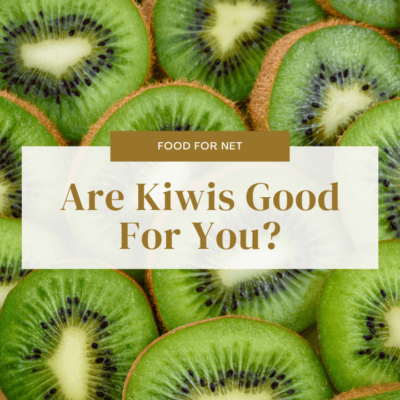
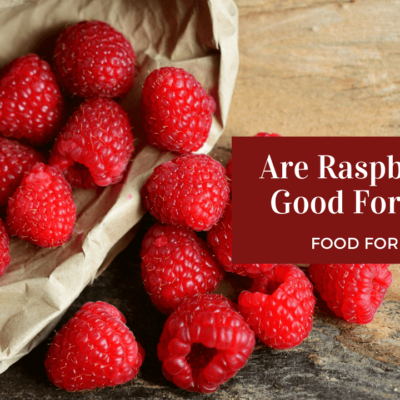
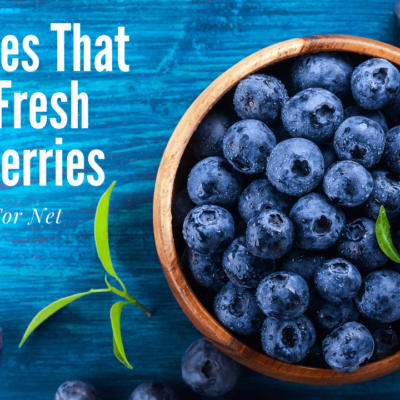
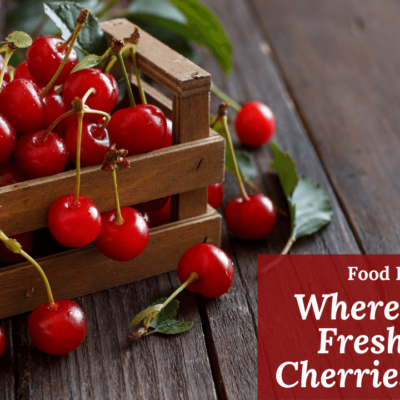







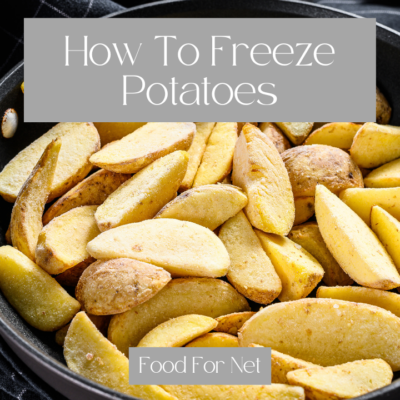



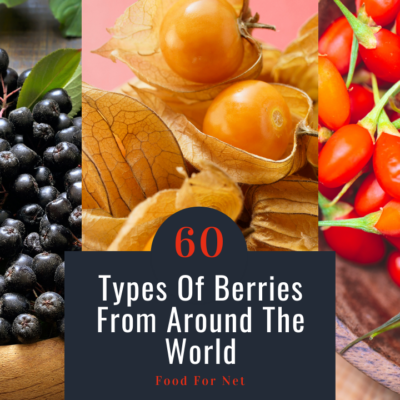
 Is Drinking A Gallon Of Water A Day Good For You?
Is Drinking A Gallon Of Water A Day Good For You?
Leave a Reply